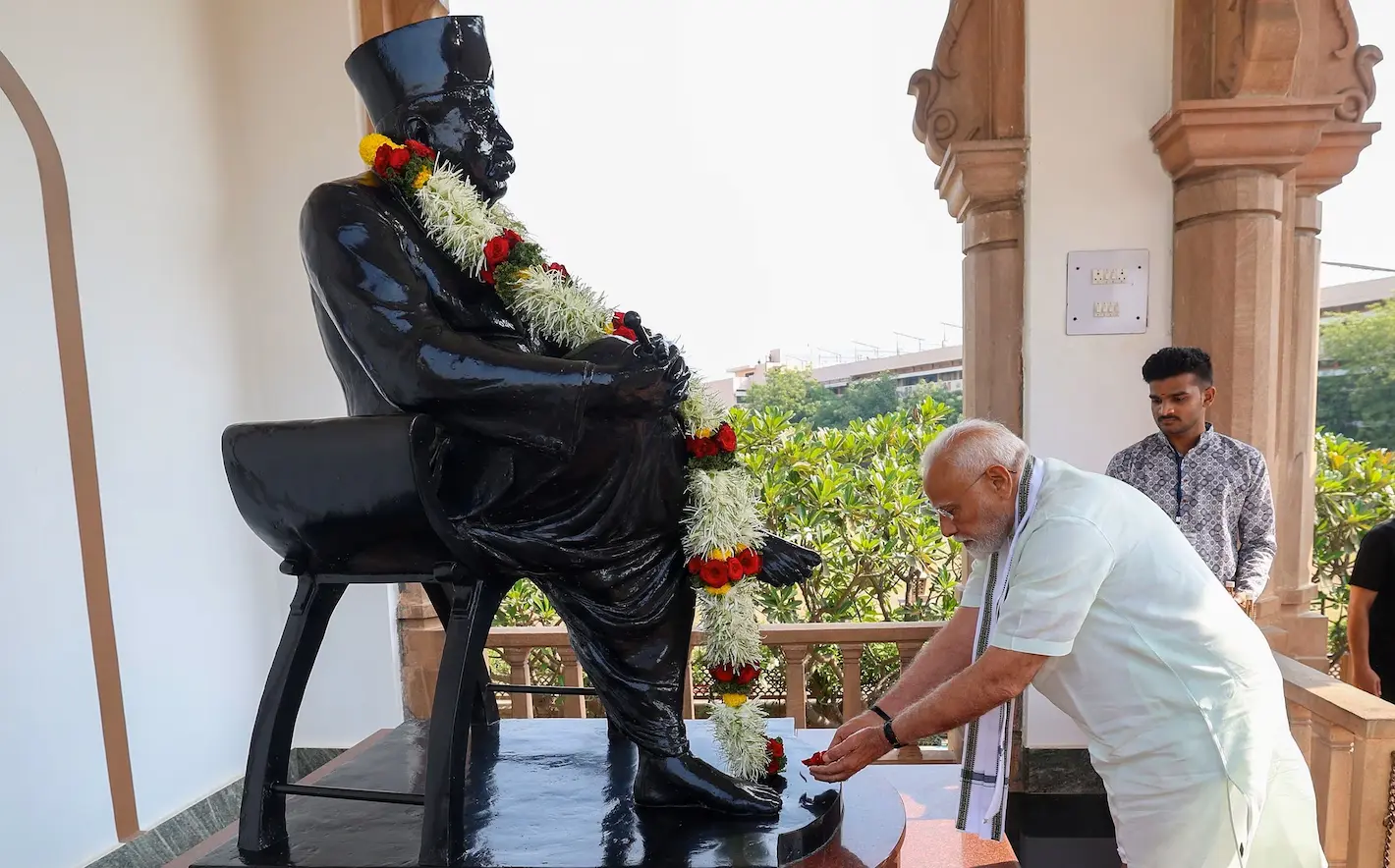
PM Modi commemorates RSS’s 100-year journey on Vijaya Dashami, praising its legacy of service, discipline, and cultural pride in shaping India’s national identity. (photo-X@narendramodi)
100 Years of RSS: PM Modi’s Heartfelt Tribute to a Century of Service and Nation Building
Published on:
Author: Rapido Updates
A Historic Milestone: RSS Turns 100
RSS 100 Years- On the auspicious occasion of Vijaya Dashami 2025, Prime Minister Narendra Modi paid tribute to the Rashtriya Swayamsevak Sangh (RSS) as it completed 100 years since its founding in 1925. In a heartfelt tweet, PM Modi wrote, “On Vijaya Dashami, a hundred years ago, the RSS was born with the aim of working towards serving society and nation building. Over a hundred years, innumerable Swayamsevaks devoted their lives towards fulfilling this vision. Here are my thoughts.”
This centenary marks a significant moment in India’s socio-cultural history. Founded by Dr. K.B. Hedgewar in Nagpur, the RSS began as a grassroots movement to instill discipline, patriotism, and unity among Indians during colonial rule. Today, it stands as one of the largest voluntary organizations in the world, with lakhs of daily participants in Shakhas across India and abroad.
Over the decades, the RSS has grown from a small group of volunteers to a nationwide network influencing education, disaster relief, rural development, and cultural preservation. Its centenary is not just a celebration of longevity but a reflection of its evolving role in shaping India’s identity and values.
Modi’s Reflections: A Journey of Sacrifice and Service
During his Mann Ki Baat broadcast, PM Modi elaborated on the RSS’s journey, calling it “unprecedented and inspiring.” He highlighted how the organization emerged during a time when India was grappling with an identity crisis under British rule. “Centuries of slavery had deeply hurt our self-respect and self-confidence,” he said. “The RSS was born to restore pride in our civilization and serve the nation.”
Modi praised the selfless dedication of Swayamsevaks, who have consistently stepped forward during natural disasters, social challenges, and national emergencies. “The spirit of sacrifice and service and the teachings of discipline are the true strength of the Sangh,” he emphasized.
He also acknowledged the Sangh’s quiet but powerful influence in building character among youth. “The RSS has always focused on nurturing values, not just slogans,” Modi said. “Its work is not about headlines but about heartlines—connecting people to the soul of the nation.”
RSS’s Role in Nation Building
Over the past century, the RSS has played a pivotal role in shaping India’s social fabric. From organizing relief efforts during floods and earthquakes to promoting education and rural development, its volunteers have been active across sectors. The Sangh’s philosophy of “Nation First” has guided its actions, often beyond political boundaries.
PM Modi acknowledged this contribution, stating, “Whenever there is a natural disaster anywhere in the country, RSS volunteers are the first to reach there.” He also lauded the organization’s efforts in promoting cultural pride, discipline, and unity among citizens.
In recent years, the RSS has also supported initiatives like Swachh Bharat Abhiyan, Beti Bachao Beti Padhao, and environmental conservation. Its affiliated organizations, such as Seva Bharati and Vidya Bharati, continue to work in education, healthcare, and tribal welfare. These efforts reflect the Sangh’s commitment to inclusive development and social harmony.
Centenary Celebrations and Public Sentiment
The centenary celebrations began with Path Sanchalans (marches) across cities like Pune, where dignitaries including Union Minister Murlidhar Mohol and Maharashtra Minister Chandrakant Patil paid tribute to the legacy of the Sangh. Floral offerings were made to statues of national icons like Chhatrapati Shivaji Maharaj, symbolizing the RSS’s deep-rooted respect for India’s heritage.
Public sentiment around the centenary has been largely positive, with many expressing pride in the organization’s achievements. “The RSS’s work of awakening pride in our religion, culture, and nation has been largely successful,” said Patil. Millions of volunteers continue to participate in daily Shakhas, embodying the values of discipline and patriotism.
Social media was abuzz with tributes, photos, and videos of centenary events. Hashtags like #RSS100Years and #VijayaDashami trended across platforms, reflecting the emotional connection many Indians feel toward the organization. Educational institutions, cultural groups, and community leaders also joined in the celebrations, organizing seminars and exhibitions to highlight the Sangh’s legacy.
Looking Ahead: RSS in the Next Century
As the RSS enters its second century, questions arise about its evolving role in a rapidly changing India. With technology, globalization, and youth aspirations reshaping society, the Sangh’s challenge will be to stay relevant while preserving its core values.
PM Modi’s tribute serves as both a recognition of past achievements and a call to continue the mission of service. “I offer my best wishes to every volunteer who is dedicating himself to the great yagya of serving the nation,” he concluded.
Experts believe that the RSS will increasingly focus on digital outreach, youth engagement, and global Indian communities. Its emphasis on character building, civic responsibility, and cultural pride may find new expressions through online platforms, educational reforms, and international collaborations. The centenary is not just a look back—it’s a launchpad for the future.
From humble beginnings in 1925 to a global presence in 2025, the RSS’s journey reflects the power of collective action, discipline, and unwavering commitment to national service. As India celebrates Vijaya Dashami, it also honours a century of dedication that helped shape its destiny—and prepares for the century ahead.